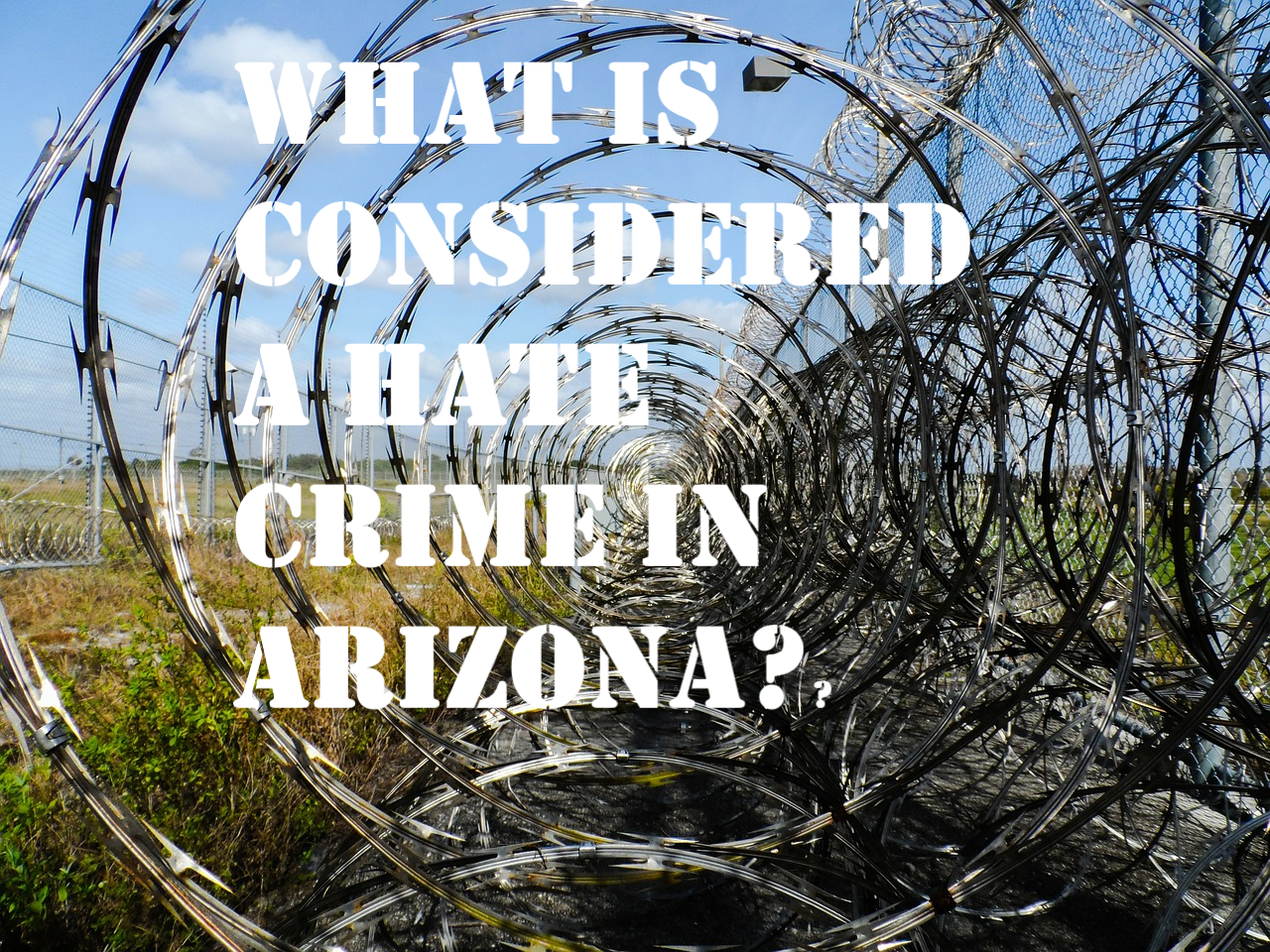
12 Aug What is Considered a Hate Crime in Arizona?
For an act to be considered a hate crime, a criminal offense must have taken place. Crimes that were committed out of hatred or bias toward another person’s identity can carry stiffer penalties. Today we’ll lay out some examples of legitimate actions that may be considered hate crimes, and cover the basic principles of Arizona’s hate crime statute.
Definition of a Hate Crime in Arizona
Hate crime in Arizona has been on the rise in recent years. Arizona citizens have reported being the targets of hate crime based on their heritage, race, religion, and sexual orientation. Harming someone because of these reasons is against the law.
Here are some examples of criminal acts that could be considered hate crimes:
- Assault accompanied by racial slurs
- Threats made towards someone that include the use of hate speech
- Vandalism accompanied by symbols of hate
The definition of a hate crime, here in Arizona, can be boiled down to this simple explanation: if the court convicts someone for breaking any existing law, and that criminal act was blatantly committed out of hate, it can be considered a hate crime.
Convicting someone of a hate crime isn’t always as cut and dry as it may seem. The courts have the responsibility to uphold and protect the freedom of speech, even if that speech is unpleasant or offensive. This may surprise some, but hate speech alone is not a criminal act. By exercising your 1st Amendment Right, you are never breaking the law.
AZ Hate Crime Statute
In order to convict someone of a hate crime, Arizona law needs to see clear evidence that the defendant committed the crime out of animosity based solely on the victim’s identity. If the crime was done out of a desire to harm someone because of their race, color, religion, national origin, sexual orientation, gender, or disability, according to Arizona state law (A.R.S. 13-701-D-15) the court must carefully consider the case to determine whether a hate crime had been committed.
Hate Crime Charges in AZ
Hate crime in Arizona can go by another name, bias crime. Being charged with a bias crime or hate crime can be considered an aggravating factor in a case, making an existing sentence more severe for the defendant. For example, if the court convicts a defendant of property destruction and also sees that the crime was intentionally committed out of malice towards another person’s identity, the punishment will be more rigid.
Expert Legal Defense in Scottsdale
Crimes are committed for a multitude of reasons. Those reasons are not always clear. Some criminal acts are premeditated, some are crimes of passion committed in the moment, and others are considered hate crimes.
Todd Coolidge’s experience sets him apart from others in the field. He is a Certified Criminal Law Specialist who has defended cases involving every form of motivation, including hate crimes. If you’re facing criminal charges that you fear could be aggravated because of bias or hate crime, give us a call for help.
photo by: Jody Davis from Pixabay.com on 8/12/2021 | used under the creative commons license | changes made; added text: “hate crimes in arizona definition”




